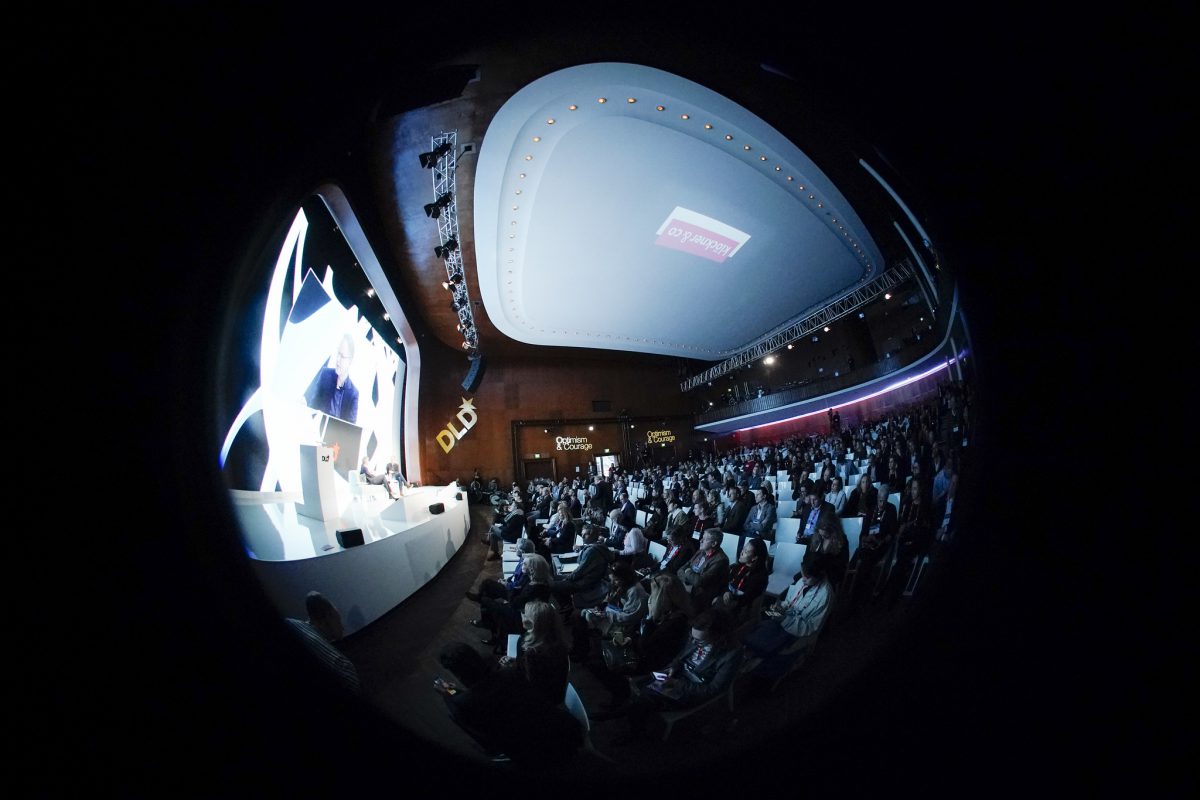“Adapt or die” has been nature’s governing principle since the beginning of time. Humans are experts at adjusting to change – and entrepreneurs cherish the opportunities that technological progress brings. But rarely has the pace of change felt as relentless as in the digital age. Companies need to reinvent themselves constantly to survive and their employees can no longer rely on a career for life. Even cultural institutions feel a pressure to adapt. For mankind itself, changing the lifestyles and consumption habits of billions of people may become a matter of survival on a planet that’s increasingly crowded and depleted of resources. Thankfully there are many ways to turn the need to change into a force for good, as a range of sessions at DLD 2019 showed. You’ll find the full set of videos recorded at the conference on our YouTube page.
Speeding Up
“This is the slowest moment you’ll know for the rest of your lives”, Oxford economist Ian Goldin tells his audience at the beginning of his talk, explaining that global connectivity accelerates the exchange of ideas, with every day bringing new potential to solve cancer or Alzheimer’s or to create a carbon-free global economy to address climate change. “We’re in an age of discovery”, Goldin says. “This is the second Renaissance.” But progress brings anxiety, too, as automation threatens jobs and the effects of globalization have – in Goldin’s view – too often been mismanaged. His conclusion: “If we do not create a sustainable and inclusive globalization, it will fall apart as the Renaissance did.”
Cleaning Up
Plastic pollution is an environmental challenge of growing urgency. Marcella Hansch, an avid diver, one day realized that “there was more plastic around than fish”. An architect by training, she founded the non-profit Pacific Garbage Screening and developed the concept of a floating platform intended to filter discarded bottles and other plastic waste out of the oceans. For details, watch her conversation with Heike Vesper and Sam Handy, moderated by J. Carl Ganter.
Changing Appetites
By 2050, almost 10 billion people will live on Earth, the United Nations predict – and to produce enough food for them in a sustainable way will require a dramatic rethink of what we eat and how we eat. Industrial animal farming is often cruel and also a big contributor to global warming. As an alternative, a number of startups are developing ways to grow meat in a laboratory. “It tastes just like the bacon you can buy down the store”, says Brian Spears, co-founder of New Age Meats. But no animal has to die for the sausages that his company is producing – and no pig needs feeding or antibiotic treatments. Instead, the meat is grown from stem cells in a controlled environment.
Once you’re done snacking on meat, watch the panel “Eat The Future” with Hila Cohen, Ophelia Deroy, Nina Möllers, Zack Denfeld and Amit Zoran to learn more about alternatives to today’s food production and consumption.
A Distinct Whisper
With electric cars becoming ever more popular, the automobile industry is at the cusp of its biggest disruption so far. Car lovers who rejoice at the roar of a combustion engine may dread the relative silence of e-mobility. Others are perhaps hoping for more peace along busy streets. But it can also be a problem that electric cars are so quiet, as musician and sound designer Renzo Vitale explains. For security reasons, electric vehicles are actually required to make at least enough noise to warn people of their presence – offering manufacturers an opportunity to give each model a sound so unique that it becomes part of the car’s personality.
Making New Friends
New York City’s Metropolitan Museum of Art is almost 150 years old and habors cultural treasures comprising some 5,000 years of human history. With his staff of 60 people, The Met’s Chief Digital Officer, Loic Tallon, is working on the task of “connecting people to creativity, knowledge, and ideas” in entirely new ways. Already, the museum counts more than 30 million visitors on its website each year and collaborates with Wikimedia to find a broader audience for the many works in its collection. In addition, Tallon is always looking for new partners, arguing that “if we approach art from a sense of human history we can connect people on a larger scale”. Will technology at one point make the physical museum obsolete? No, Tallon believes: “Digital does not substitute for the physical experience.” Read more in our interview after you’ve watched his talk.
Creative Variations
R/GA co-founder Bob Greenberg built change into his company’s DNA. After launching R/GA as a design agency in 1977, Greenberg and his brother Richard decided to reinvent the firm’s business every nine years – venturing into digital filmmaking, interactive advertising, product development and consulting. The one constant – besides change itself – has been a focus on creativity. “We don’t really care about anything that isn’t creatively driven. That’s at the heart of everything we do”, Bob Greenberg explains in his conversation with Hans Ulrich Obrist, Artistic Director of the Serpentine Galleries in London.
Plenty of Options
As an investor, Union Square Ventures partner Albert Wenger cannot afford to revel in gloom and doom. He has to look for solutions that offer an upside – for new business models and investment opportunities but also society in general. In his talk, Wenger invites his audience to think differently about many of today’s challenges, from climate change to automation and misinformation on social networks. Everybody, he argues, can help to bring positive change, even in small ways. “We’re not doomed”, Wenger concludes, “as long as we stay optimistic. Because when we stay optimistic we find the courage to do things.”
Please visit the DLD 2019 YouTube page to see additional videos, covering a broad range of topics such as artificial intelligence, cyber security, data privacy, and trust.
